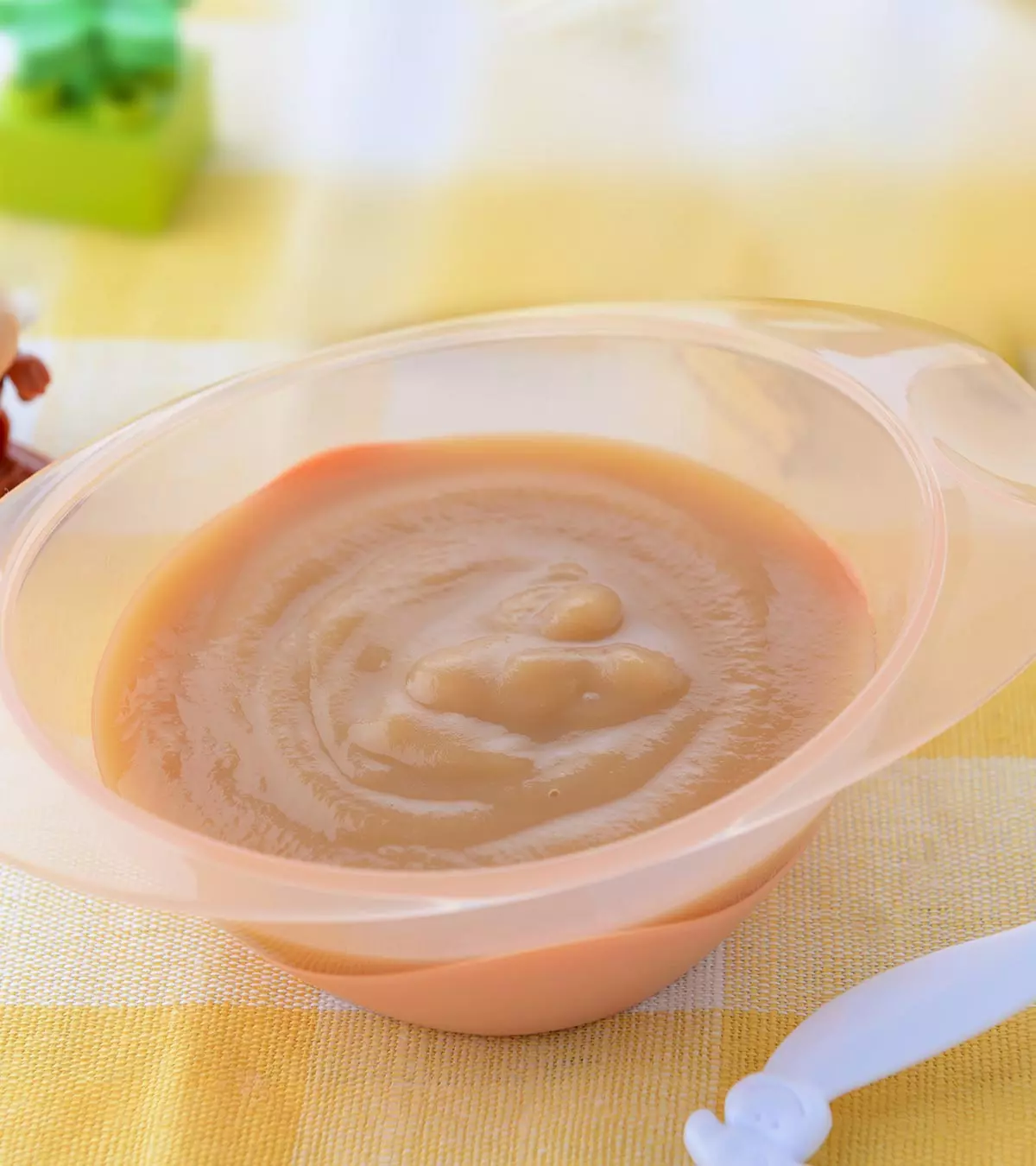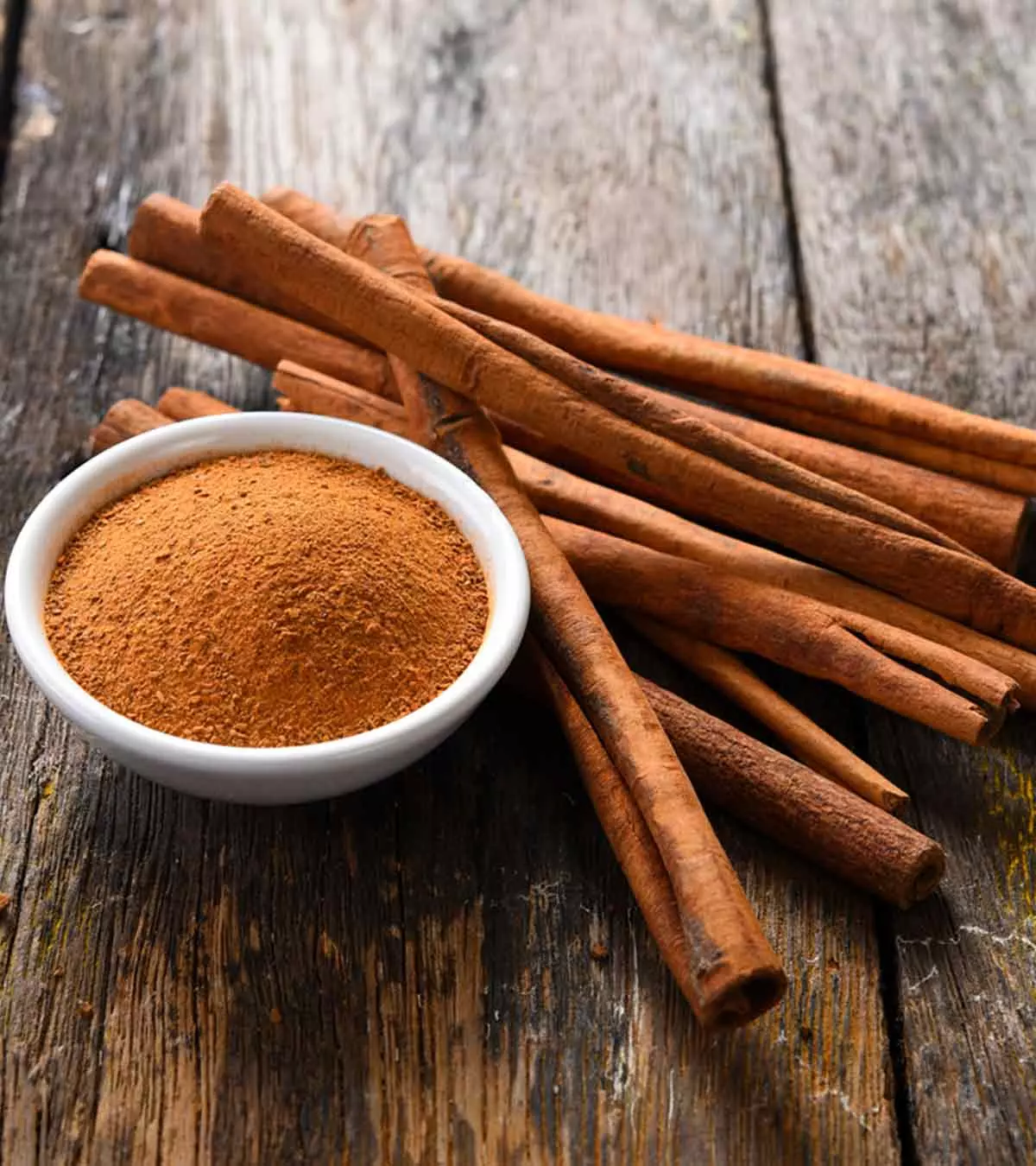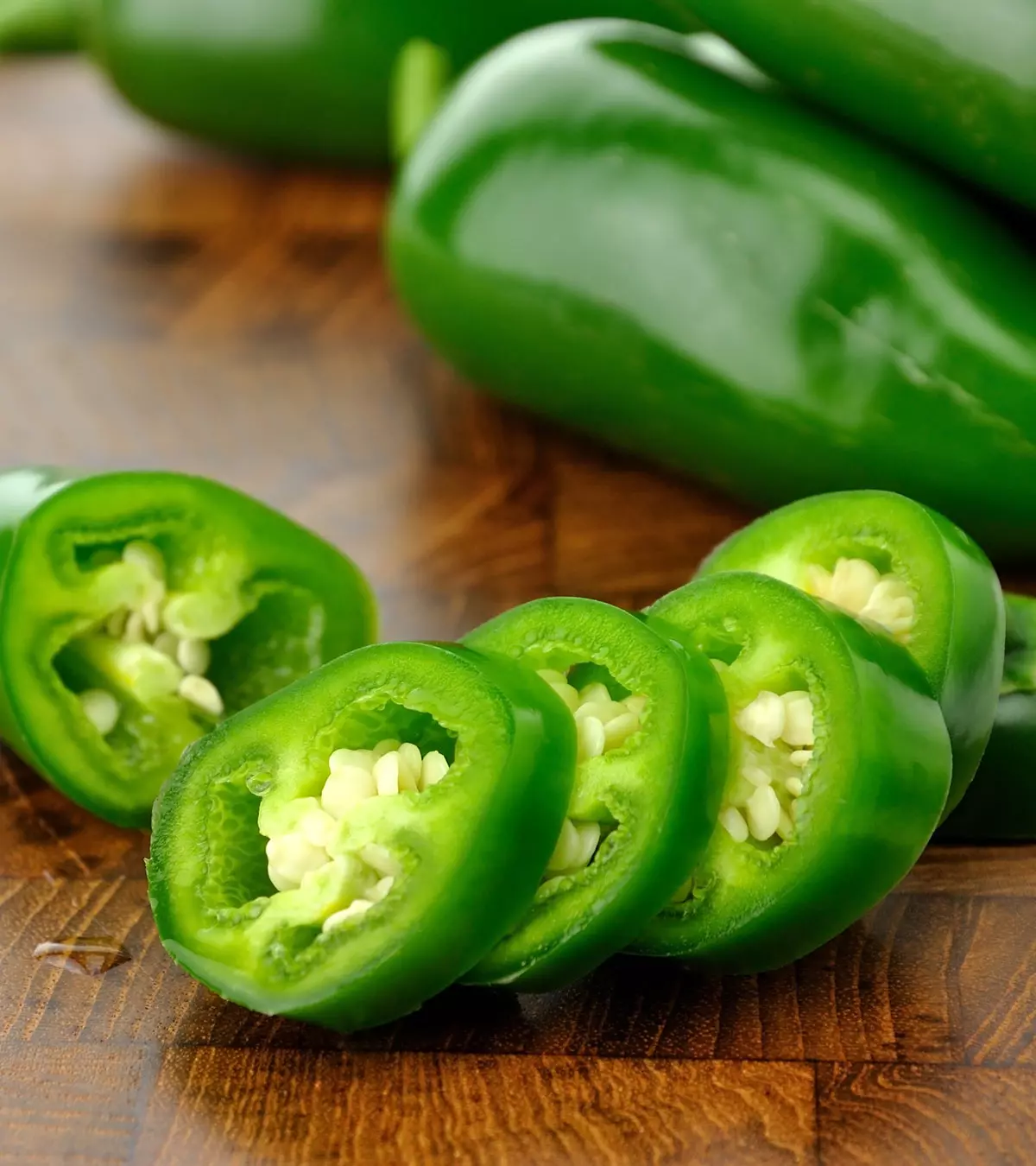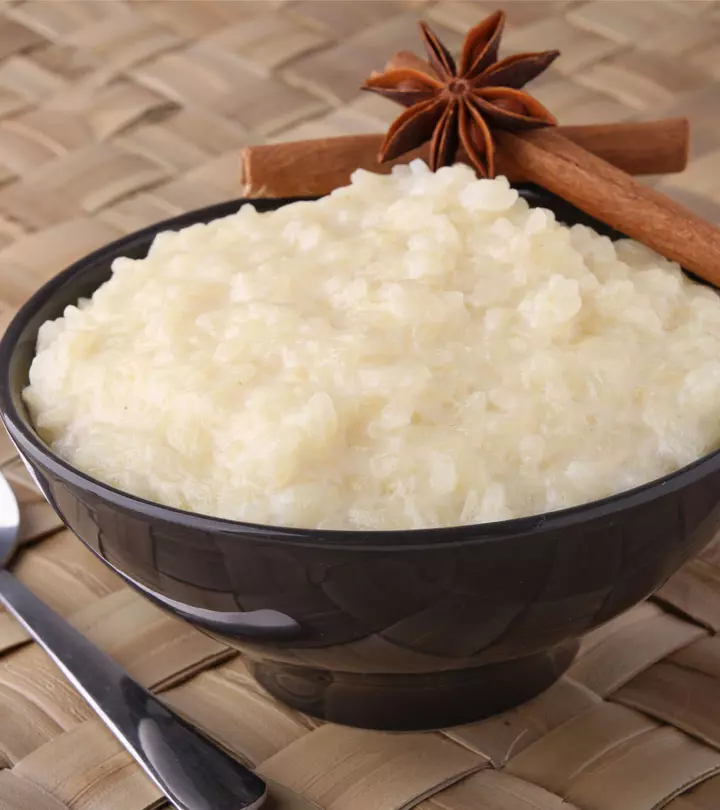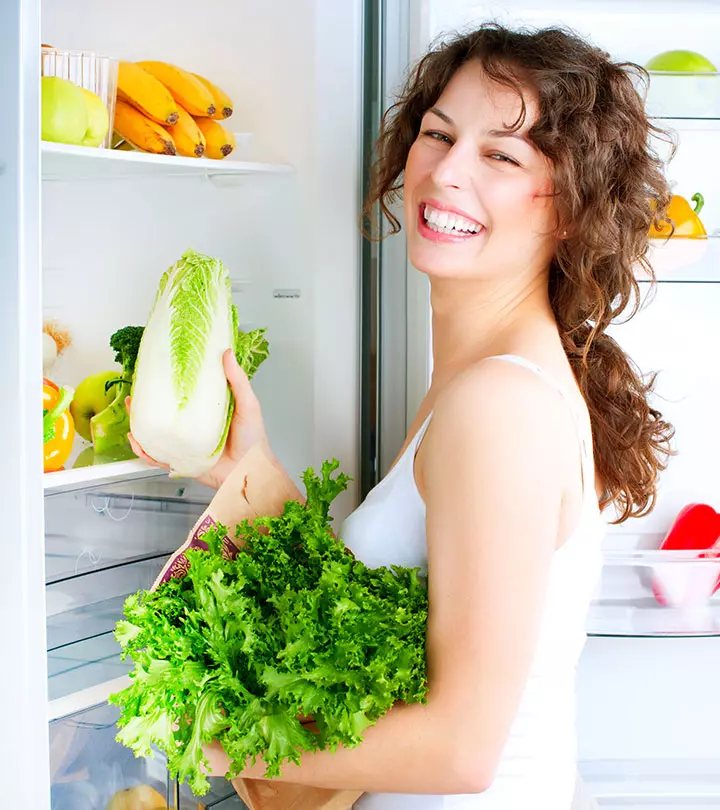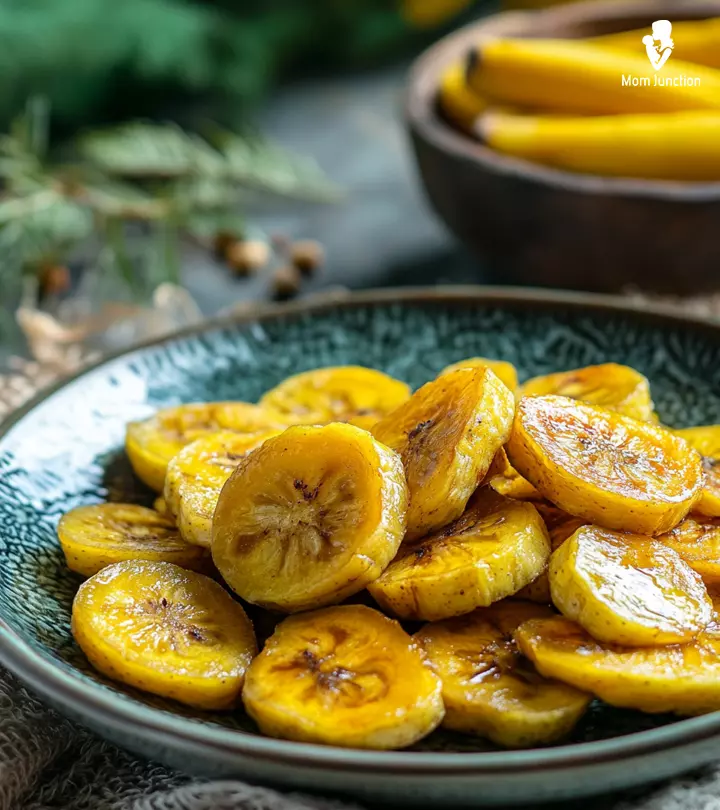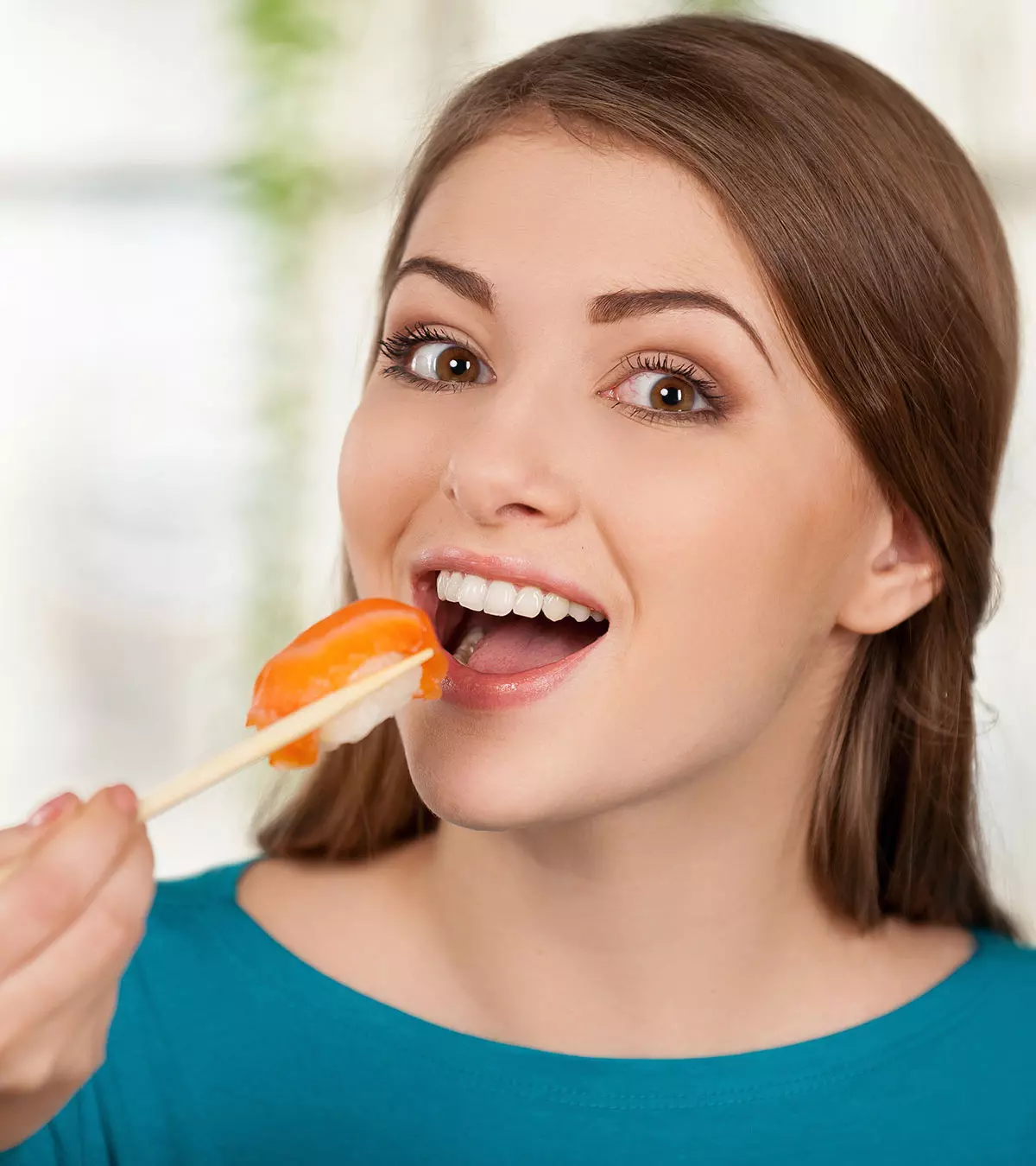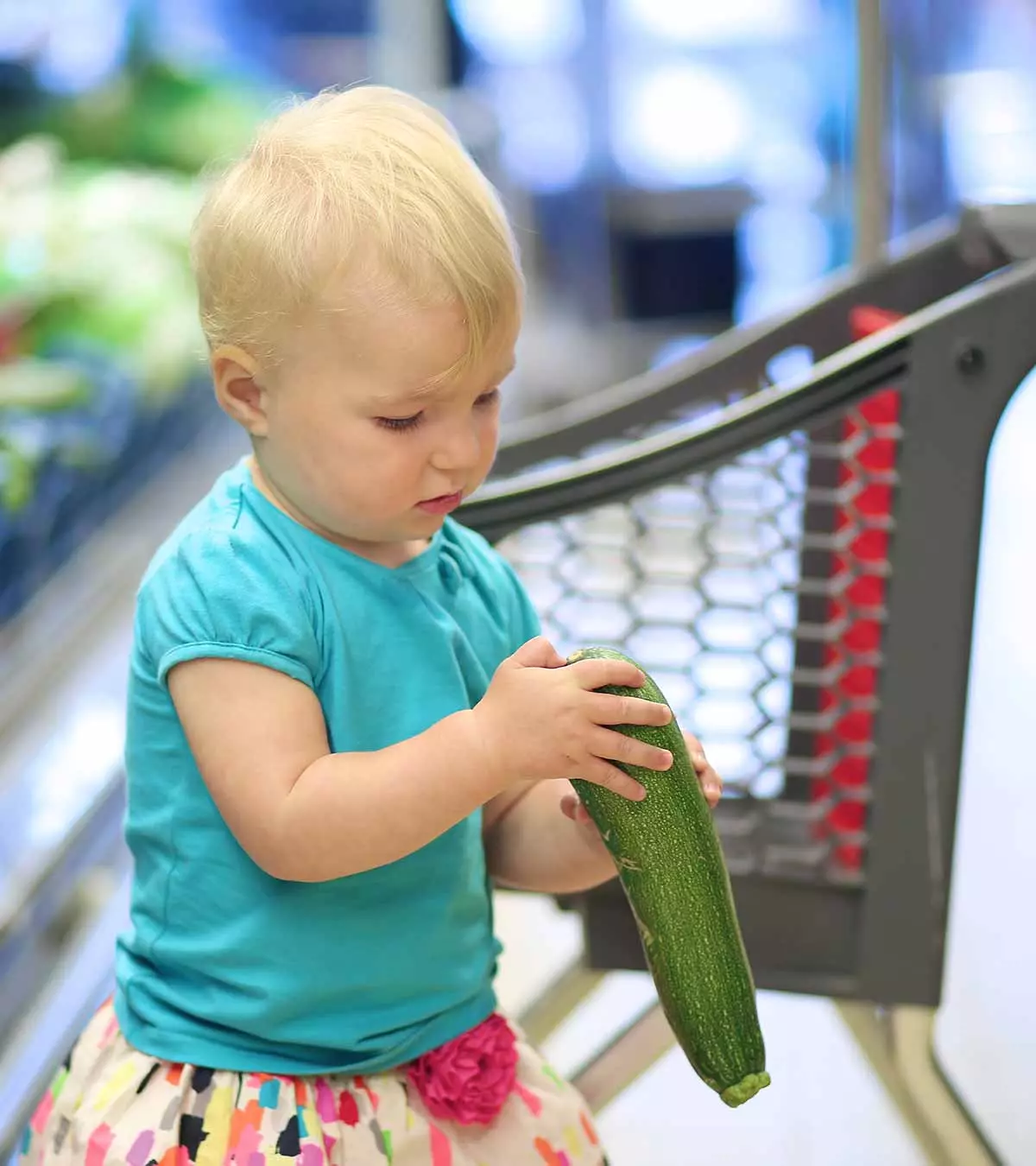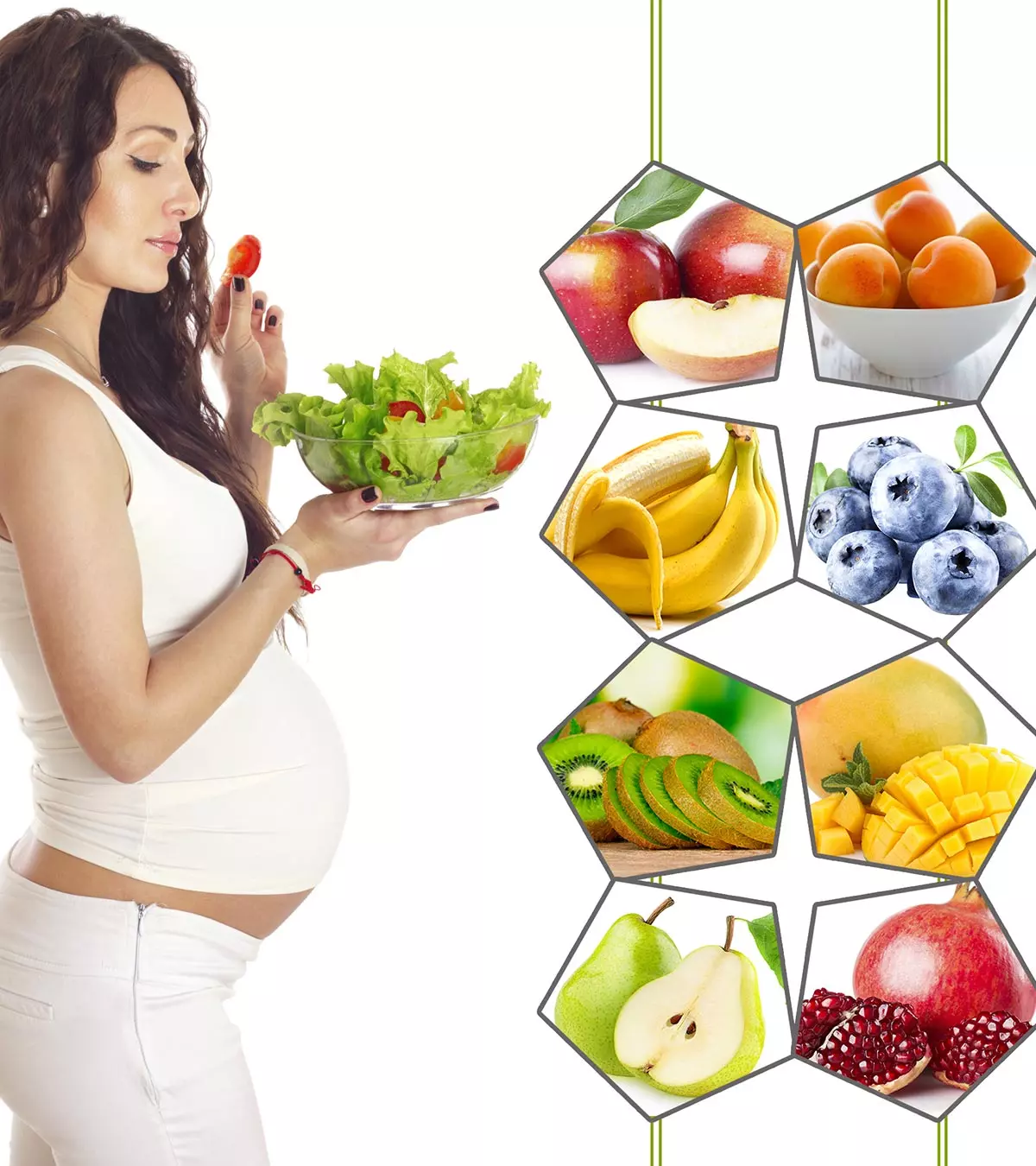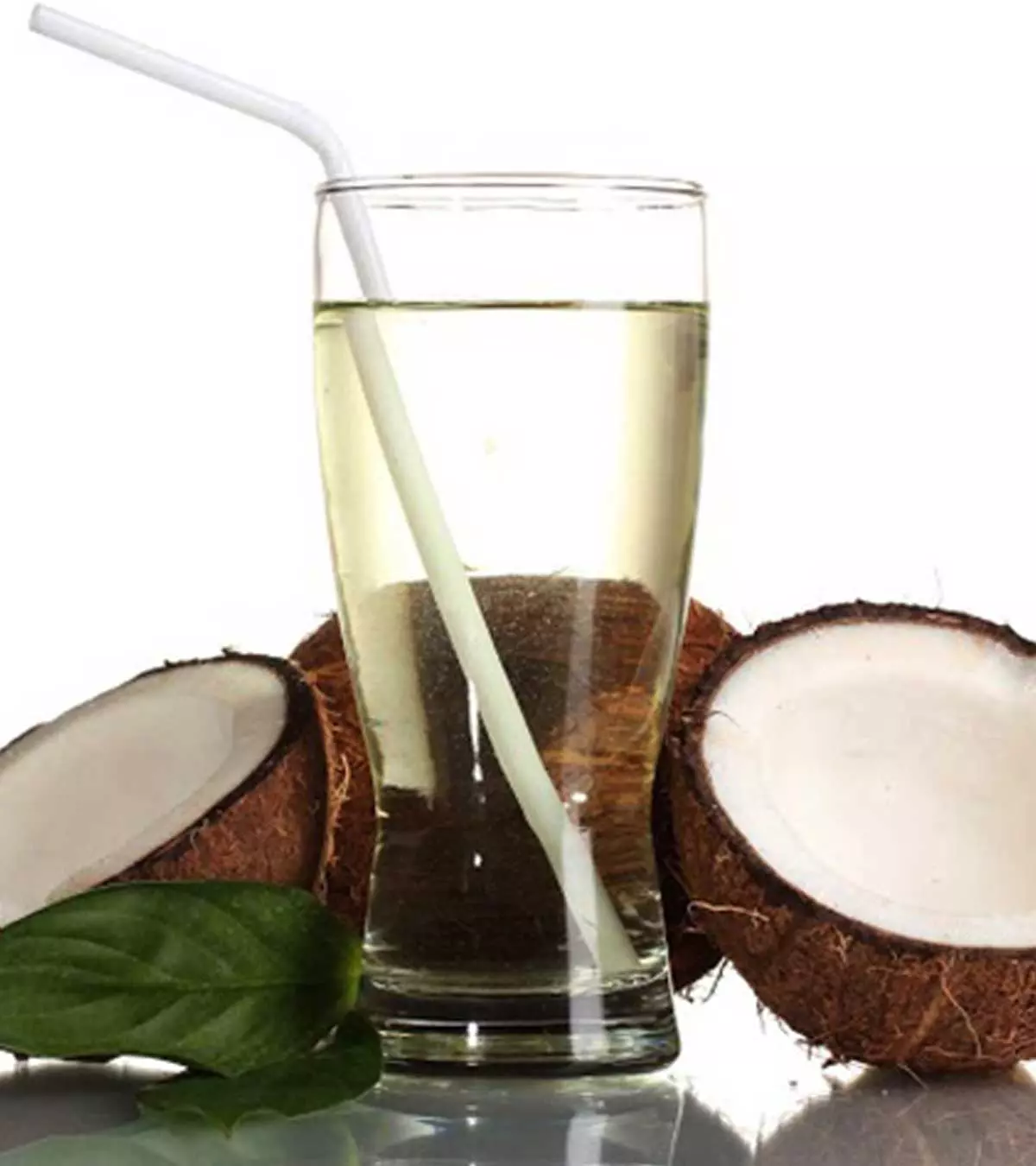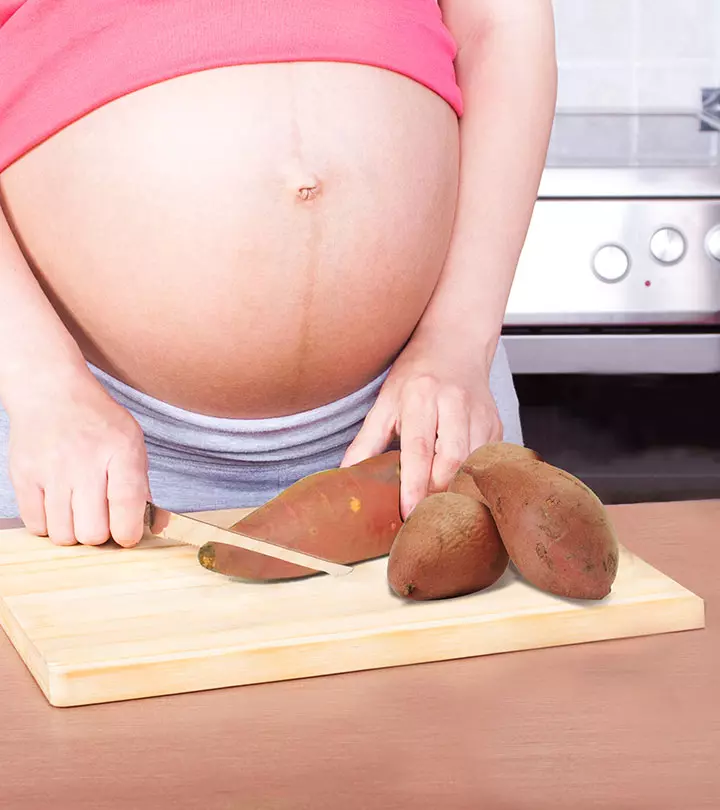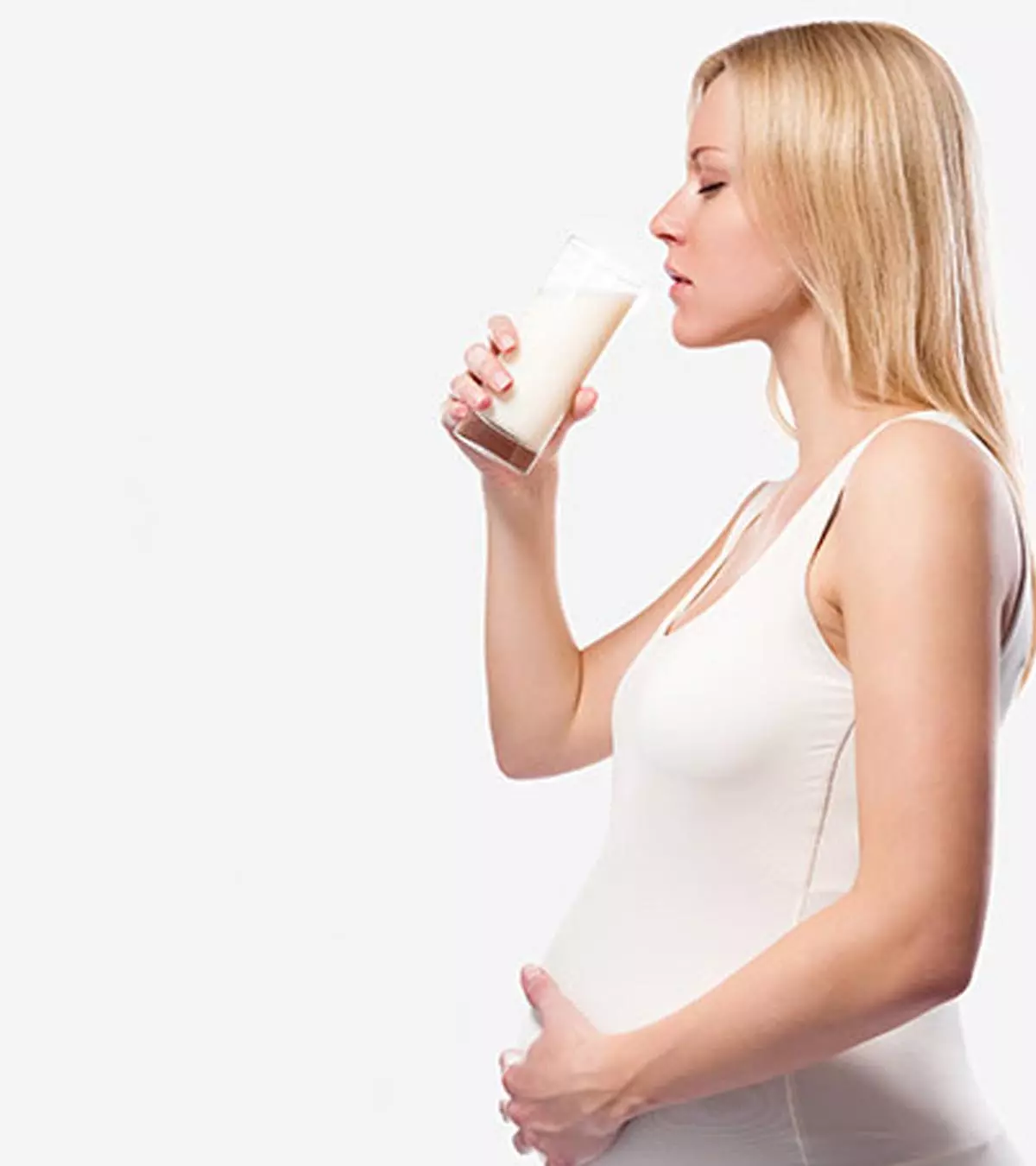
Image: ShutterStock
Bee pollen is the pollen from flowers and plants collected by worker honeybees to be used primarily for food. It can be gathered by placing traps at the entrance of the bee hives. Bee pollen contains essential amino acids, vitamins, minerals, antioxidants, and bioflavonoids that promote health. Some people also believe in the benefits of bee pollen for fertility. Traditionally, bee pollen, also known as royal jelly or ambrosia, was an anti-aging and energy-giving food. In addition, it is believed to promote reproductive health, increase egg quality, boost endurance, and subside allergy symptoms owing to its rich nutrient profile (1). While couples looking for natural remedies for infertility choose bee products as a holistic approach, it is important to note that no studies exist to support the effectiveness of bee pollen in increasing fertility. Read on to learn more about whether bee pollen improves fertility and its potential side effects.

Key Pointers
- Bee pollen may enhance reproductive health, improve egg quality, increase endurance, and alleviate allergy symptoms.
- Bee pollen supplements may raise estrogen and testosterone levels, promoting fertility.
- Individuals allergic to bee pollen may experience skin rashes, wheezing, low pulse, and discomfort.
- To ensure safety, only buy bee pollen supplements from reputable sources, and seek advice from a healthcare professional before consuming.
Bee Pollen And Fertility

Bee pollen is considered one of the foods that increase fertility. Here’s how bee pollen is believed to work:
- Some women may have difficulty in conceiving due to the lack of nutrients. Since bee pollen is a nutrient-rich food, taking its supplements could help restore the nutrient balance in the body (2) and might improve the possibility of conception.
- Bee pollen is believed to increase estrogeniA hormone responsible for the development and functioning of female reproductive organs. levels and support uterine liningiA lining of the uterus where the embryo implants after the fertilization process. and stimulate ovarian function (3). It may, therefore, help in releasing healthy eggs.
- An animal study has shown the androgenic property of bee pollen, wherein it caused an increase in testosterone level and sperm count (4). This study has been supported by several other animal studies where bee pollen has been found to improve semen quality and physiological health. It is, therefore, likely to support male fertility as a natural medicine and food supplement (11).
- A systematic review of a total of 47 studies also showed that bee products such as bee pollen, royal jelly, and propolis are effective in managing symptoms of polycystic ovarian syndrome (PCOS)iA hormonal condition in females that affect ovaries and cause hormonal imbalance and irregular periods. and PCOS-related infertility if given with PCOS medicines. However, it is important to note that this finding was inconclusive due to the lack of enough data (12).
- Bee pollen is rich in phenolic compounds which have been found to help in weight loss. Being overweight or obese is also a potential cause of infertility in both males and females (13). Therefore, taking bee pollen can help to reduce weight and thus, may improve fertility (14).
Possible Side Effects Of Bee Pollen

Robert Saper, MD, MPH, a wellness and preventive medicine specialist at the Cleveland Clinic says, “Although it’s (bee pollen) been suggested to help many conditions, there’s inadequate data to say for certain. Dr. Robert further shares, “Pollen is a major cause of allergic rhinitisiAn allergic reaction of a nose caused due to an inflammation by the allergens. or hay fever. So if you know you have a pollen allergy or general seasonal allergies, it’s safest to avoid bee pollen (15).”
Some common symptoms you may observe in people with pollen allergy include (6):
- Skin rash
- WheezingiHigh-pitched whistling sound caused due to the blocking or narrowing of airways in the lungs
- Low pulse
- Troubled breathing
- Swelling of face, lip, throat, or tongue
- Gastrointestinal discomfort, such as nausea and stomach cramps
- In rare cases, it could also cause anaphylaxisiAn extreme reaction to an allergen causing breathing difficulties and loss of consciousness.
Those taking blood thinners should avoid consuming bee pollen. People with stomach problems, hay fever, prostate problems, and joint pains should also consult a doctor before consuming bee pollen. Additionally, those with asthma and allergies to bee stings, honey, or pollen grains are advised against taking it (5) (6).
Bianca, a blogger, shares her experience about how her husband overcame intolerance to bee pollen. She says, “When he began taking bee pollen, he would develop within seconds an itchy throat and mild allergy symptoms. We simply cut back his dose and slowly upped it until he experienced none of these symptoms at all. Now, he takes several tablespoons a day of pollen (i)!”
 Quick fact
Quick factMeasures To Take While Taking Bee Pollen For Fertility

While consuming bee pollen for fertility, following these measures could play a role in conception.
- Choose only high-quality bee pollen obtained from organic sources. Those sourced from industrial farms might contain harmful chemicals. Be careful in selecting the source and brand of the bee pollen.
- Consume small amounts of bee pollen at first and gradually increase the dose. Speak to your doctor before taking any bee pollen products.
- Eat healthy foods rich in nutrition and avoid processed foods that have high amounts of salts and toxins.
- Consider taking other fertility-supportive foods, such as nuts and seeds, to increase nutrient intake.
- Indulge in regular exercises, get enough rest, and de-stress yourself.
- Get regular checkups to understand the fertility condition of both you and your partner.
- If you plan to take the supplements during ovulation, consult your doctor first.
- It is wise to take advice from your gynecologist or reproductive endocrinologist before you start with any bee nectar or pollen supplements.
 Be watchful
Be watchfulHow Much Bee Pollen Should You Take A Day?
There is no standard dosage of bee pollen for fertility problems since it is an unproven treatment. A certified herbalist might guide you in this. A study suggested 3-5 teaspoons of bee pollen for adults and about 1-2 teaspoons for children taken orally. Each teaspoon is suggested to contain 7.5g of pollen. Moreover, small doses of bee pollen are suggested if taken with other prescribed medication for chronic illness (14).
Frequently Asked Questions
1. Can bee pollen help with polycystic ovary syndrome (PCOS)?
A study indicates that bee pollen, alone or with metformin, can alleviate PCOS symptoms in rats (8). However, more research is required to determine if bee pollen is helpful for humans.
2. Can bee pollen be used in conjunction with IVF treatments?
A study suggests that bee pollen can improve IVF treatments (9). However, more research is necessary to determine if these results stay consistent in all women undergoing IVF treatments.
3. Can bee pollen help with menstrual irregularities?
Bee pollen may reduce premenstrual syndrome symptoms, but it is not known if it can help with menstrual irregularities (10). Further research is required to assess its effects on menstrual anomalies and hormonal balance.
Bee pollen is commonly used as a dietary supplement as it is rich in many essential nutrients and micronutrientsiEssential nutrients, including vitamins and minerals that the body requires in lesser quantities. . It is also gaining popularity as a remedy for fertility issues. It is advisable to use such alternative therapy only under a doctor’s guidance. Moreover, you should ensure that the bee pollen you use is good quality and organic. Store it in an airtight container and sprinkle it over salads, smoothies, muffins’ batter, or oatmeal for better consumption.
Infographic: Bee Pollen As Possible Infertility Treatment
If you are struggling with fertility, you may have heard many suggestions from well-wishers to increase your chances of conceiving. Bee pollen is one such way. This infographic highlights how it may help with infertility and possible side effects. So remember to consult your doctor before using it to prevent complications.
Some thing wrong with infographic shortcode. please verify shortcode syntax
Illustration: Bee Pollen And Fertility: Everything You Need To Know

Image: Dalle E/MomJunction Design Team
Personal Experience: Source
MomJunction articles include first-hand experiences to provide you with better insights through real-life narratives. Here are the sources of personal accounts referenced in this article.
i. More on How to Use Bee Pollen, Dosages and List of Symptoms if You’re Sensitivity;
https://unorderedlistadventures.blogspot.com/2011/04/more-on-how-to-use-bee-pollen-and-list.html
References
1. Gene Bruno; Bee Pollen, Propolis & Royal Jelly; Huntington College of Health Sciences (2005).
2. Jérôme Salles, et al.; Bee Pollen Improves Muscle Protein and Energy Metabolism in Malnourished Old Rats through Interfering with the Mtor Signaling Pathway and Mitochondrial Activity; Nutrients (2014).
3. How to Boost Fertility Naturally; National University Of Natural Medicine
4. Güldeniz Selmanoğlu et al.; The Effect of Pollen on Some Reproductive Parameters of Male Rats; Pesticides and Phytomedicine (Belgrade) (2009).
5. Amanda Jagdis and Gordon Sussman; Anaphylaxis from bee pollen supplement; Canadian Medical Association Journal; 2012
6. Bee Pollen; University of Rochester Medical Center
7. Bee Pollen; Drugs.com
8. Synergic effect of bee pollen and metformin on proliferation and apoptosis of granulosa cells: Rat model of polycystic ovary syndrome; Journal of Food Biochemistry – Wiley Online Library
9. Useful impacts of royal jelly on reproductive sides, fertility rate and sperm traits of animals; Journal of Animal Physiology and Animal Nutrition – Wiley Online Library
10. Is bee pollen the answer to your PMS?; Nutritionist Resource
11. Syed Ishtiaq Anjum et al.; Bee pollen as a food and feed supplement and a therapeutic remedy: recent trends in nanotechnology; Frontiers (2025)
12. Ahmad Ali et al.; The Utilization of Bee Products as a Holistic Approach to Managing Polycystic Ovarian Syndrome-Related Infertility; Nutrients (2025)
13. Atif Katib; Mechanisms linking obesity to male infertility; Central European Journal of Obesity (2015)
14. Shaden A M Khalifa et al.; Bee Pollen: Current Status and Therapeutic Potential; Nutrients (2025)15. Bee Pollen: What It Is and Why You Really Don’t Need It; Cleveland Clinic
Community Experiences
Join the conversation and become a part of our nurturing community! Share your stories, experiences, and insights to connect with fellow parents.
Read full bio of Seeemaa Budhraja
Read full bio of Rebecca Malachi
Read full bio of Swati Patwal
Read full bio of Reshmi Das






